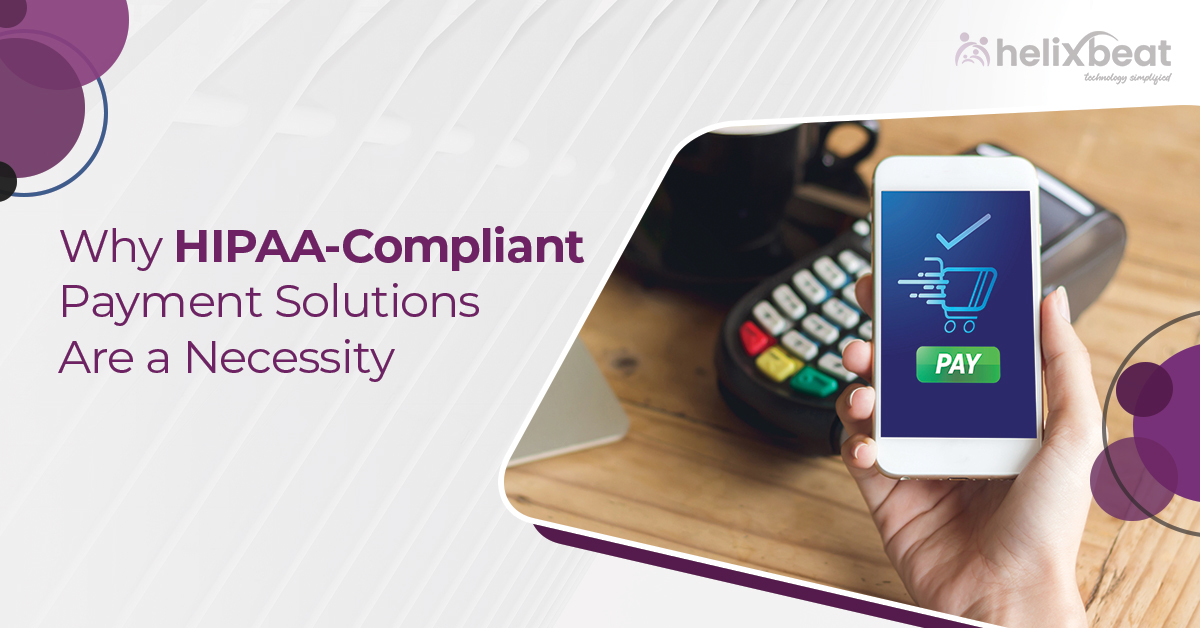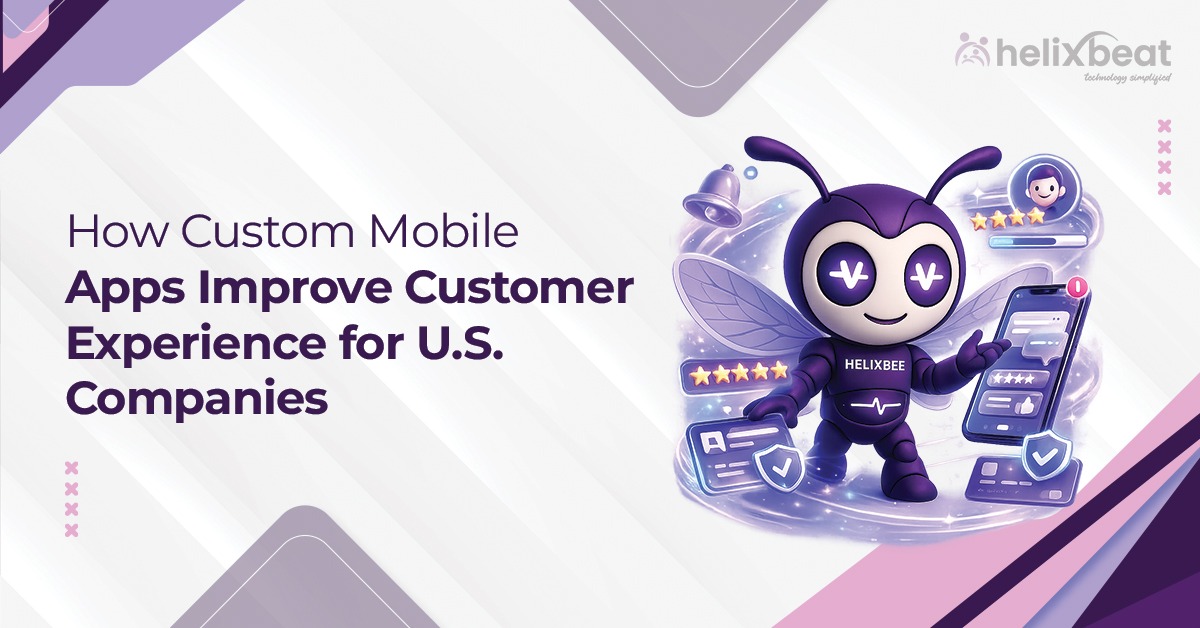As a healthcare provider, your top priority is patient care—but that care doesn’t end when a patient leaves your office. Every interaction, including payment processing, must be handled with the same level of security and professionalism. Imagine a scenario where a patient’s payment information gets compromised due to weak security measures. The consequences could be devastating, leading to financial fraud, legal trouble, and loss of trust.
HIPAA-compliant payment solutions ensure that patient financial data is protected at every step. By following strict security protocols, these systems help prevent breaches, maintain compliance, and reinforce the trust your patients place in you. Let’s explore why secure payment processing is crucial in healthcare and how you can safeguard your practice from potential risks.
Table of Contents
What Exactly is HIPAA Compliance in Payment Processing?
The Health Insurance Portability and Accountability Act (HIPAA) is the gold standard for protecting patient information in the U.S. While most people associate HIPAA with medical records, it also extends to payment processing. Why? Because when a patient makes a payment, their financial information is often linked to their medical data, creating a potential risk if not handled properly.
HIPAA sets the standards for protecting sensitive patient data, including personal health information (PHI) and financial information. While the act primarily focuses on the security and privacy of medical records, its rules extend to payment processing systems used by healthcare organizations. Any system that handles patient payments must implement safeguards to prevent unauthorized access, breaches, or misuse.
HIPAA-compliant payment processing ensures that patient financial data is stored, transmitted, and managed securely. This requires adherence to specific standards, such as encryption, secure transmission protocols, and regular system audits.
The Big Risks of Non-Compliant Payment Systems
You might be wondering, “What’s the worst that could happen if a healthcare provider doesn’t use a HIPAA-compliant payment system?” The answer: a lot.
1. Data Breaches and Financial Fraud
In today’s world, cybercriminals are more sophisticated than ever. Without proper security measures in place, hackers can easily gain access to patients’ financial and medical information. A single data breach can expose thousands (or even millions) of records, leading to identity theft and financial fraud. Patients’ credit card details, insurance information, and even billing addresses could fall into the wrong hands. The consequences? Unauthorized purchases, fraudulent claims, and significant financial damage to both the patients and the healthcare providers. Beyond the financial impact, such breaches can lead to long-term stress and frustration for affected individuals, who may spend years trying to reclaim their stolen identities.
2. Legal Troubles and Hefty Fines
HIPAA violations come with serious financial consequences. The fines for non-compliance can range from $100 to $50,000 per violation, depending on the severity and whether the violation was due to negligence. If a healthcare provider repeatedly fails to implement secure payment systems, penalties can add up to millions of dollars. In extreme cases, businesses have been forced to shut down due to the financial burden of these fines. Beyond monetary penalties, legal battles and lawsuits from affected patients can further strain a provider’s resources. Legal trouble doesn’t just impact the organization—it can also put individual healthcare professionals at risk, affecting their careers and reputations.
3. Loss of Patient Trust
Trust is the foundation of any healthcare relationship. When a patient entrusts their financial and medical information to a provider, they expect that information to be handled with the utmost care. However, if a security breach occurs, that trust is shattered. Patients who hear about a payment security failure may not feel comfortable returning to that provider for future care. Negative publicity from such incidents can also deter potential new patients. In an industry where word-of-mouth and reputation are critical, losing trust due to non-compliance can have long-term consequences. Even loyal patients may consider switching to a different provider that prioritizes data security.
4. Operational Chaos
A data breach or compliance failure isn’t just about money—it can throw an entire healthcare organization into disarray. If a provider is found to be non-compliant, they may be forced to halt payment processing until security measures are corrected. This means delays in billing, insurance claim disruptions, and administrative chaos. Employees may have to undergo emergency training sessions, IT teams may need to implement urgent fixes, and regulatory audits can eat up valuable time. Meanwhile, frustrated patients may face payment issues or delays, leading to an overall negative experience that impacts both patient satisfaction and staff morale.

How HIPAA-Compliant Payment Solutions Keep Data Safe
So, what exactly makes a payment system HIPAA-compliant? Here are some of the must-have security features:
1. Data Encryption
Encryption ensures that patient financial data—such as credit card details and banking information—is transformed into an unreadable format. This means that even if hackers manage to intercept the data, they won’t be able to use it. Strong encryption algorithms make sure that sensitive information remains inaccessible to unauthorized parties. Healthcare providers must use end-to-end encryption, ensuring that data is protected both during transmission and while at rest in storage. This significantly reduces the risk of data leaks and cyberattacks, helping to maintain compliance with HIPAA regulations and protect patient confidentiality.
2. Secure Payment Gateways
A secure payment gateway acts as a protective bridge between healthcare providers and financial institutions. It encrypts transaction details and ensures payments are processed safely, preventing unauthorized access. Secure gateways also monitor for fraudulent activity, identifying suspicious transactions before they become major security threats. By implementing an advanced payment gateway with built-in fraud detection tools, healthcare providers can minimize risks while maintaining a seamless patient payment experience. Additionally, these gateways ensure that payment information is never stored in an unsecured location, reducing liability and ensuring compliance with HIPAA security standards.
3. Tokenization
Instead of storing actual credit card details, tokenization replaces sensitive information with unique tokens. These tokens have no value outside the system, making them useless to cybercriminals. For example, if a hacker gains access to a healthcare provider’s database, they would only find random tokenized values instead of real credit card numbers. Tokenization reduces the risk of data breaches while ensuring that transactions remain secure. Many payment processors implement this technique to provide an additional layer of security, ensuring that sensitive financial information is never exposed or stored in a way that could be compromised.
4. Multi-Factor Authentication (MFA)
Adding an extra layer of security, MFA requires users to verify their identity through multiple methods (e.g., a password and a unique code sent to their phone) before accessing payment systems. This prevents unauthorized access even if login credentials are stolen. In healthcare settings, MFA is particularly crucial for protecting financial and patient data from cyber threats. By requiring multiple verification steps, MFA significantly reduces the likelihood of hacking attempts, phishing attacks, and unauthorized transactions, making it one of the most effective ways to enhance security in payment processing.
5. Regular Security Audits
HIPAA-compliant systems undergo routine audits to identify vulnerabilities and ensure all security measures remain up to date. This proactive approach helps prevent potential breaches before they happen. Regular audits help healthcare providers assess risks, identify weak points, and take corrective actions before a security lapse occurs. Compliance teams monitor regulatory changes and ensure payment processing systems meet all HIPAA standards. By continuously improving security protocols and updating software to patch vulnerabilities, providers can maintain a strong defense against cyber threats and ensure that patient payment data remains safe at all times.

Paynova’s HIPAA-Compliant Payment System: Ensuring Secure Healthcare Transactions
Paynova’s payment system is designed to meet HIPAA (Health Insurance Portability and Accountability Act) compliance standards, ensuring the security and privacy of patient financial data in the healthcare industry.
- Secure Data Encryption – Paynova encrypts all patient payment information to prevent unauthorized access. This ensures that sensitive financial data remains protected from cyber threats.
- Access Control Measures – The system restricts access to authorized personnel only, ensuring that patient financial details are not exposed to unauthorized users.
- Secure Payment Processing – Paynova follows HIPAA and PCI-DSS (Payment Card Industry Data Security Standard) guidelines, reducing fraud risks and ensuring that transactions are processed safely.
- Audit Trails and Monitoring – The system tracks and logs all payment activities, allowing healthcare providers to monitor transactions and detect any suspicious activity in real-time.
- Compliance with Healthcare Regulations – Paynova ensures that all payment transactions comply with HIPAA regulations, protecting patient rights and preventing data breaches.

By integrating Paynova’s HIPAA-compliant payment gateway, healthcare providers can securely process payments, protect patient information, and ensure regulatory compliance, reducing risks and improving trust in digital healthcare transactions.
End notes
As a healthcare provider, your responsibility goes beyond offering quality medical care—you also need to protect your patients’ sensitive information at every touchpoint, including payments. Implementing HIPAA-compliant payment solutions isn’t just about following regulations; it’s about ensuring trust, security, and seamless operations for your practice.
At Paynova, we understand the critical importance of securing patient payment data while maintaining compliance with HIPAA regulations. Our advanced, secure payment solutions offer encryption, tokenization, multi-factor authentication, and seamless integration, ensuring that every transaction is safe and compliant.
Protect your patients. Safeguard your practice. Strengthen trust.
Get started with Paynova today and experience secure, HIPAA-compliant payment processing.
Contact us now to learn how Paynova can help you streamline payments while keeping your practice fully compliant.
Frequently Asked Questions (FAQs):
- What is HIPAA compliance in payment processing?
HIPAA compliance ensures that patient payment data is securely stored, transmitted, and managed according to strict privacy and security regulations.
- Why do healthcare providers need HIPAA-compliant payment solutions?
They protect patient financial data, prevent breaches, avoid legal penalties, and maintain trust in healthcare transactions.
- What happens if a healthcare provider fails to comply with HIPAA regulations?
Non-compliance can lead to hefty fines, legal actions, reputational damage, and potential data breaches.
- How does encryption enhance payment security?
Encryption converts sensitive payment data into unreadable code, preventing unauthorized access and reducing the risk of cyber threats.
- What is tokenization in payment processing?
Tokenization replaces credit card details with unique tokens, ensuring that sensitive data isn’t stored or exposed in case of a breach.
- How can multi-factor authentication (MFA) improve payment security?
MFA adds an extra security layer by requiring multiple verification steps before accessing payment systems, reducing unauthorized access risks.
- Are HIPAA-compliant payment solutions more expensive?
While secure systems may have initial costs, they prevent financial losses from fraud, breaches, and non-compliance fines, making them a smart investment.
- How can Paynova help with HIPAA-compliant payments?
Paynova offers secure payment gateways with encryption, tokenization, MFA, and compliance tracking to protect patient data and streamline transactions.














